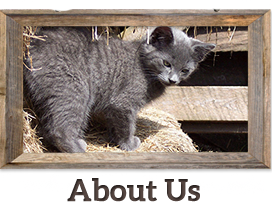Library
-
Gemfibrozil is a medication prescribed off-label by veterinarians to treat high levels of fat (lipids) in the blood of dogs and cats when dietary modifications have not been effective. Occasionally, it is also used in birds for the same purpose. As a relatively new drug in veterinary medicine, its benefits, side effects, and adverse effects are still being determined.
-
There are multiple methods of inheritance that determine which characteristics (or phenotypes) are displayed by the offspring, including autosomal dominant, autosomal recessive, and sex-linked inheritance. There are also many polygenic traits (i.e., associated with multiple genes) as well as environmental factors that make it much more complicated to predict disease or the likelihood of passing disease onto offspring.
-
Hand-raised babies usually make better pets, as they have been completely socialized with humans. Hand-feeding is a job best left for the experienced bird breeder or aviculturist. If you are considering hand-feeding a baby bird, you should contact your local bird breeder or avian veterinarian for help. This article provides general guidelines and best practices.
-
Chickens are fun, playful, friendly small pets, and they can be very enjoyable both in an outdoor or indoor environment. Like all small pets, chickens require the proper diet, protection from predators, and room to move around. This handout discusses general housing, nutrition, and health care for chickens.
-
A place of height is a place of dominance for many birds. It can be a territorial claim and position of control. Unless trained properly, birds placed on high locations like the shoulders or on top of their cages are more likely to try and "run the show." This handout outlines how to avoid these problems.
-
Home renovation can be arduous for every member of the household. Awareness of possible construction site problems will help homeowners avoid pet-related issues. A little planning can make the renovation process run more smoothly everyone.
-
Birds are naturally inquisitive and, if not properly supervised, will get into many predicaments. It is crucial that you bird proof your home. The bird's cage is its house and the confines of your home represent the bird's environment and you must ensure it is safe.
-
In general, the bigger the cage, the better. This article provides recommendations on the best cage for your bird, including size, shape, material, and safety concerns. Preferred perches, feeding dishes, and toys are also addressed in depth.
-
In general, the bigger the cage, the better. This article provides recommendations on the best cage for your bird, including size, shape, material, and safety concerns. Preferred perches, feeding dishes, and toys are also addressed in depth.
-
If your pet had an emergency crisis, how would you manage it? Ask your veterinary hospital how they handle after-hour emergencies. Use this handout to help you plan ahead and be prepared in the event of a pet health emergency.


